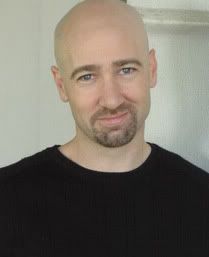China Stories Pt. 33: Change of Plans
Bob and I had made plans earlier in the spring to leave China in June via the Trans-Siberian railway. There are a couple of different routes, but we planned to go from Beijing to Moscow, then on to Berlin. From there, I was going to find my way down to Paris before heading back to the States.
The process to do the Trans-Siberian trip is relatively straightforward - you need to reserve the train tickets, which we had done. Then you need to get visas for each country, in reverse order. I can't remember if I needed a visa for East Germany, but I do remember going to get the Polish visa, which I needed before I could get the Soviet visa, which I needed before I could get the Mongolian visa.
Getting visas was a little bit intimidating - I'm in a Socialist country, going to the embassies of other (still) Socialist countries. In actuality, it was no big deal - just an inconvenience.
I biked and subway'd across town to the Polish Embassy. In the consular section I went up to a window to fill out the application. Over the shoulder of the consular official I noticed a calendar. It was the kind of calendar you expected to see in a garage - there was a woman leaning on a car, wearing a jumpsuit open to the waist. She had one breast exposed. I felt like It was watching me as I filled out my paperwork.
A couple of weeks went by, and I went back to retrieve my visa. Under the watchful eye of the government of Poland and of The Breast, I retrieved my Polish visa. Now I had to go to the Soviet Embassy.
I made another cross-town pilgrimage to the Soviet Embassy. The Soviet Embassy was a giant complex - it felt like a college campus. There was a TV blaring in the waiting room. There were Chinese-looking people speaking Russian, and Russian-looking people speaking Chinese. It was a little confusing. I submitted my application, and was told to come back for my visa in two weeks.
But I never made it. Everything Started Happening, and I never picked up my visa.
I hadn't changed my plans, so much as they were simply set aside, overtaken by events.
Bob and I (and many others) had originally planned to extend our stay in the University's dorm until our mid-June departure date. This was pretty typical, and was all arranged. But after the demonstrations started, the school changed its mind and kicked us out on short notice in mid-May. It wasn't a big shock, since they weren't too thrilled that we had stopped going to class and were working for CBS News. In any event, I hadn't stayed a night on campus in at least 2 weeks. I'd been staying at the Shangri-La hotel, in one of the many rooms CBS had rented. I went back to my dorm room one last time, and had about 10 minutes to pack. I just dumped all of my belongings into my backpack. (Later, I found that some of my momentos from my CBS stint were gone - I think my roommate Chad had appropriated them.)
I got so busy at CBS that I forgot all about my visa, and in any case, at some point Bob and I both knew we weren't going to make the trip.
We didn't know when we would leave. Why should we leave at all? We were so wrapped up in what we were doing, so focused on what unfolded everyday, that the idea of planning to leave simply receded into the background.


